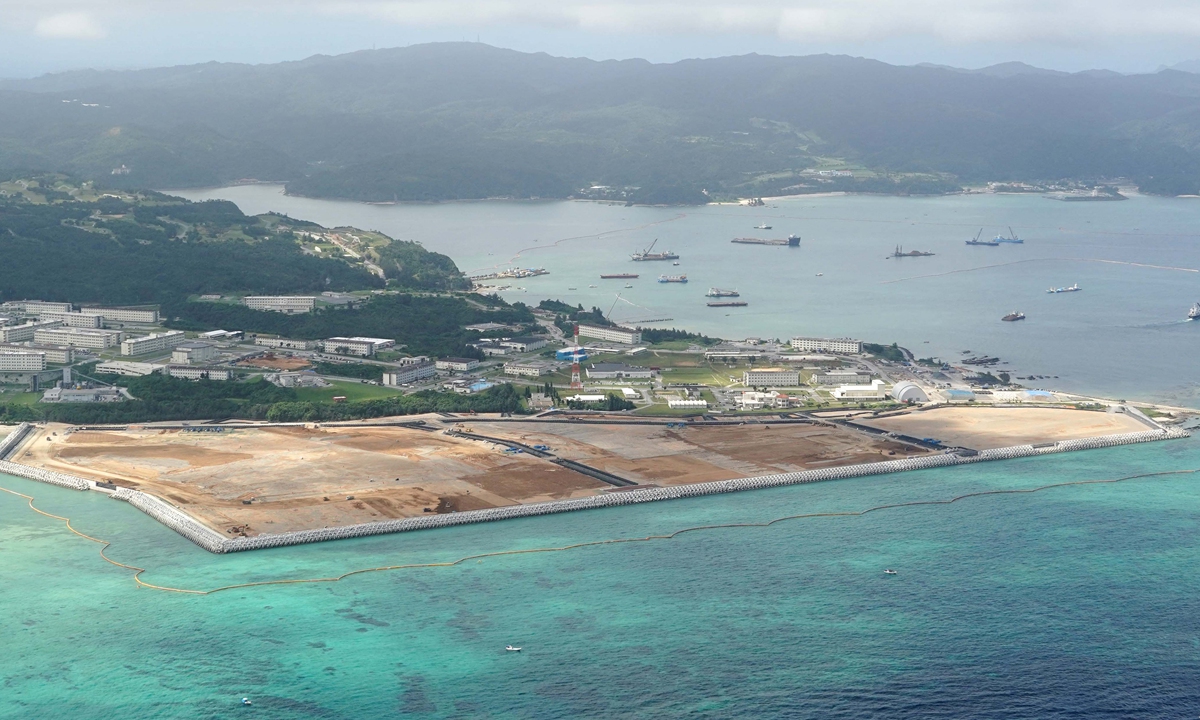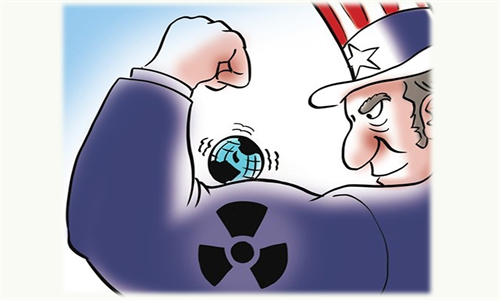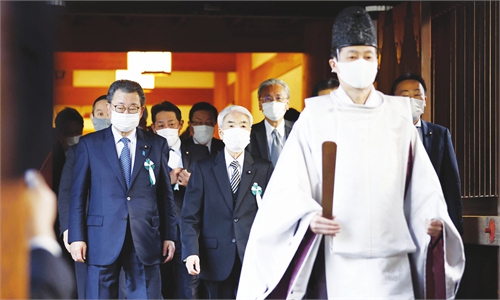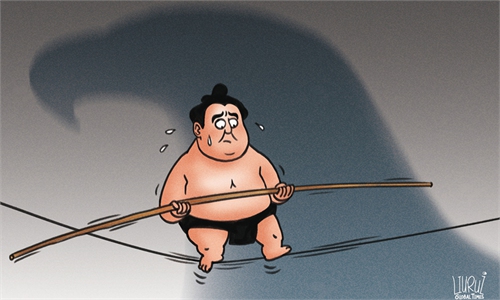
Landfill site for US air base in Okinawa. Photo: AFP
The US Senate confirmed on Saturday more than three dozen of President Joe Biden's nominees to ambassadorial posts, including Rahm Emanuel, the White House chief of staff for former US president Barack Obama, being confirmed as the US ambassador to Japan.However, as Emanuel's nomination was objected to by multiple Democratic senators, several Republican senators showed their support to him for the reason that they expect Emanuel to oppose a proposal of no-first-use nuclear policy within the Biden administration.
Japan has grown increasingly concerned about this proposal. Taro Kono, director of the public affairs department with Japan's Liberal Democratic Party, said earlier in December that the no-first-use nuclear policy "could send the wrong message to China and North Korea."
Why is there a discussion within the US about no-first-use nuclear policy? In fact, the US has been assessing its own strategic advantages and exploring the safest and most effective nuclear policy. The US introduced nuclear weapons into South Korea as early as in January 1958 with the goal of deterring a possible North Korean attack, claiming that North Korea would suffer retaliation of a nuclear strike if it risked attacking South Korea under the conditions of a military imbalance in the Korean Peninsula. In such situations, the US' first-use of nuclear weapons is a nuclear deterrence and blackmail.
But during the Cold War era, the US could not completely destroy the Soviet Union, which was strong in nuclear power, thus a first-use policy did not serve as a form of deterrence, but could instead draw mortal danger onto itself. As a result, there were discussions back then about whether to abandon the policy of the first-use of nuclear weapons to benefit the US itself by avoiding a nuclear war. However, after the disintegration of the Soviet Union, the US backed off from the idea.
Now, the US, once again, is aware of the significantly shifted balance of power. Using the nuclear weapons first is no longer a means of deterrence. Because it is apparent that the first-use of nuclear weapons by the US would be a self-destructive move and could even bring devastating harm to all of humanity.
However, Japan now is quite worried. "Generally speaking, it won't be meaningful unless all nuclear-weapons states verifiably declare the 'no first use' policy all at once," Japan's chief cabinet secretary Hirokazu Matsuno said on November 10, according to a report of Japan Press Weekly. A day later, Japanese Communist Party chair Shii Kazuo said on November 11 at a press conference in the Diet building that the "declaration of a 'no first use' policy by a nuclear power like the US will have a major effect in reducing the risk of nuclear war."
Japan is intervening in affairs involving the Taiwan question, knowing that this will put Okinawa in a dangerous situation because it is taking a risk by provoking China. Many Japanese experts believe that as the US and Japan intervene in the Taiwan question, the military bases in Okinawa will be the first to be struck down if military conflicts break out.
Thus, Japan's non-nuclear policy based on the position of Japan as the only country ever to experience a nuclear attack is actually against the possession of nuclear weapons by any country but the US. Isn't it ironic that a country that has suffered a nuclear strike by the US now has to rely on Washington's "nuclear umbrella" and use Washington's "first-use of nuclear weapons" policy as a nuclear deterrent?
What is worth mentioning more so is that Japan has never given up its desire to possess nuclear weapons. It is believed that Nobusuke Kishi, the Japanese prime minister from 1957 to 1960, used to believe "it was essential that Japan have (a) nuclear" arsenal. In June 1998, Masasuke Omori, then director general of the cabinet legislative bureau, argued that the use of nuclear weapons was possible if it was limited to the minimum necessary for the defense of Japan.
Japan has suffered from nuclear strikes. Now it has the technological capability of building nuclear weapons. Whether Japan will arm itself with nuclear weapons depends on whether the US-Japan alliance can effectively protect Japan's security and whether Washington's "nuclear umbrella" is reliable.
If Japan considers it unreliable, it will amend its constitution with the excuses of security issues to go on the path of possessing nuclear weapons. Today, Japan is already using this excuse to explore the possibility of enhancing its enemy base strike capabilities. Therefore, we should be wary of possible changes in Japan's nuclear policy.
The author is the director and professor at the Japanese Studies Center, Shanghai International Studies University. opinion@globaltimes.com.cn



